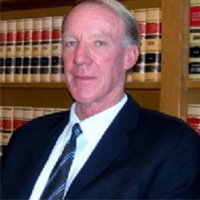Sunnyvale White Collar Crime Lawyer, California, page 2
Sponsored Law Firm
-
 x
x

Click For More Info:
-
Edwin Samuels Attorney At Law
220 South California Avenue Suite 246 Palo Alto, CA 94306» view mapCriminal Defense Law Experienced. Passionate. Persistent.
At Edwin E. Samuels, Attorney At Law, in Palo Alto, I've been representing Californians charged with a range of offenses for forty years.
800-918-7091
Frederick Herold
White Collar Crime, Litigation, Personal Injury, Employment Discrimination
Status: In Good Standing
Elizabeth Cincotta Mcbride
Lawsuit & Dispute, Intellectual Property, International Trade, White Collar Crime
Status: In Good Standing Licensed: 16 Years
Supriya Sundarrajan
Occupational Safety & Health, Criminal, Science, Technology & Internet, White Collar Crime
Status: In Good Standing Licensed: 23 Years
David Christopher Frank
Litigation, White Collar Crime, Criminal, Business
Status: In Good Standing Licensed: 34 Years
David Christophe Frank
Litigation, White Collar Crime, Criminal, Business
Status: In Good Standing Licensed: 34 Years
Durward Sewell
White Collar Crime, Administrative Law, Federal Appellate Practice, Intellectual Property, International
Status: Suspended Licensed: 36 Years
Caitlin Robinett Jachimowicz
Employment, White Collar Crime, Criminal, Accident & Injury
Status: In Good Standing Licensed: 14 Years
Victoria Elaine Horvatich
Litigation, Dispute Resolution, White Collar Crime, Trusts
Status: In Good Standing
 Edwin Samuels Palo Alto, CA
Edwin Samuels Palo Alto, CA
